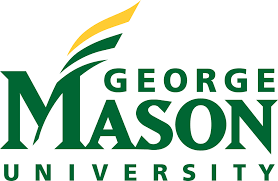Virginia Budget Boosts Funding for George Mason University Students, Infrastructure, and Employee Compensation
George Mason University received essential investments in its students, faculty and staff from Virginia’s biennium budget, which the General Assembly passed and Governor Glenn Youngkin signed on May 13, 2024. The funding goes into effect July 1, 2024.
George Mason’s priorities included increased support for university operations, student financial aid, Virginia Military Survivors and Dependents Program (VMSDEP) support, capital investments, and employee compensation.
“We are grateful to our partners in the General Assembly who have been tremendous supporters of George Mason’s mission to provide accessible and affordable education pathways,” said George Mason President Gregory Washington. “We look forward to continued collaboration in support of all students across the commonwealth.”
The biennium budget provides George Mason an additional $11.5 million in each year of the biennium to maintain students’ affordable access to quality education, attract and retain faculty and staff in positions delivering critical services needed to serve students, and to increase degree completion. Senator L. Louise Lucas, President pro tempore of the Senate and chair of the Senate Finance and Appropriations Committee, and Delegate Luke Torian, chair of the Virginia House Appropriations Committee championed efforts to secure investments in higher education. These efforts were supported by Senator Dave Marsden and Delegates David Bulova and Paul Krizek, who carried budget amendments to increase operating support.
Student financial aid will increase by $2.9 million in FY25 and $3.3 million in FY26. Additionally, legislators retained $37.5 million in funding to enhance efforts to recruit and retain students eligible for Pell Grant assistance across all institutions.
The budget provides state support to help offset the cost of tuition waiver programs, such as the Virginia Military Survivors and Dependents Education Program, helping to ensure the sustainability of these programs going forward.
Infrastructure and Compensation
Delegate Michelle Maldonado and Senator Jeremy McPike sponsored budget amendments to authorize pre-planning for a facility to house interdisciplinary science and engineering programs on the Fairfax Campus. Senator McPike led efforts to secure funding for maintenance reserve, supporting existing capital projects and one-time funding for projects with more immediate need of repair and updates.
Additionally, state employees will receive a pay raise each year of the biennium.
On March 26, a delegation of state appropriators led by Senator L. Louise Lucas and Delegate Luke Torian visited the Fairfax Campus to hear directly from students and administrators about the impact of the state’s investment in higher education. They toured the Mason Innovation Exchange (MIX) Makerspace in Horizon Hall, stopping to speak with student innovators and entrepreneurs. Senators Barbara Favola, Jennifer Carrol Foy, Mamie Locke, Dave Marsden, and Saddam Salim, and Delegates Mark Sickles, Holly Seibold, Kannan Srinivasan, and Paul Krizek participated in the event.
“We’re at George Mason University because we want our students to know how much we value them. We’re investing in them through this budget,” said Torian.
An investment in Mason students is an investment in the commonwealth’s robust economic prosperity. A recent study by the State Council of Higher Education for Virginia found that 73% of in-state George Mason graduates reside in Virginia—3% higher than other Virginia public four-year institutions. For out-of-state George Mason students, 29% settle in Virginia after graduation, 9% higher than the state average.

